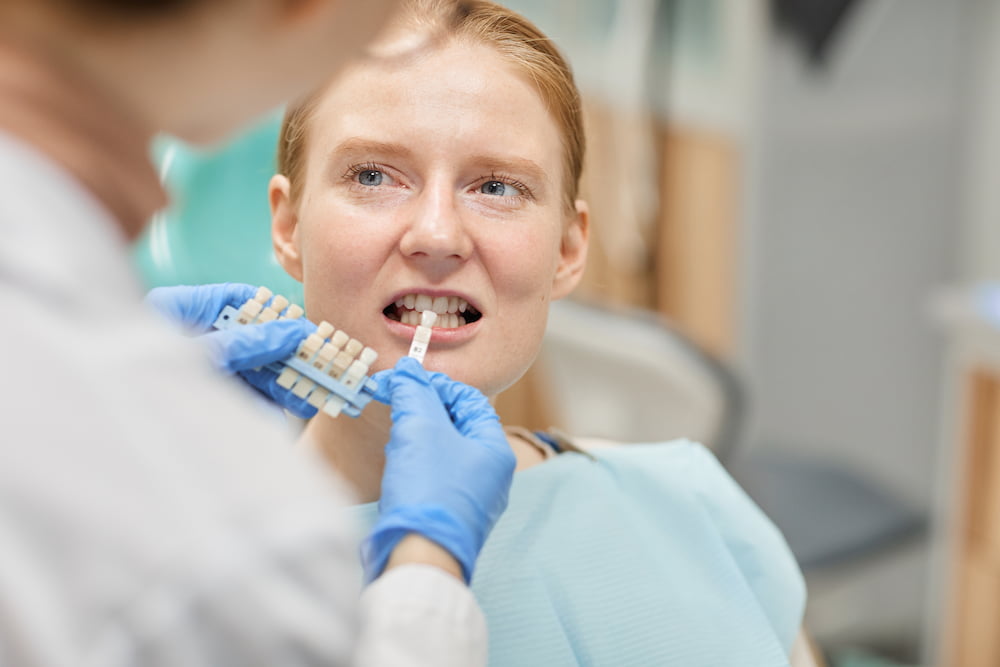Dental crowns and bridges are essential components of modern dentistry, providing strength and aesthetics to damaged or missing teeth. Proper care is vital to ensure their longevity and functionality. This article will provide tips and guidelines on how to care for your dental crowns and bridges effectively.
Understanding Dental Crowns and Bridges:
What Are Dental Crowns?
A dental crown is a custom-made cap that covers a damaged tooth. Crowns are typically used to restore the shape, size, strength, and appearance of a tooth that has been severely worn down or has undergone a root canal. They can be made from various materials, including porcelain, metal, or a combination of both.
What Are Dental Bridges?
Dental bridges are used to replace one or more missing teeth by anchoring to the adjacent teeth. A bridge consists of two crowns on either side of the gap, with a false tooth or teeth (pontics) in between. This restoration helps restore functionality and maintain the shape of the face.
Importance of Proper Care:
Dental Crowns and Bridges in Dubai, while durable, require proper care to ensure their longevity. Neglecting oral hygiene can lead to complications such as decay in the underlying tooth, gum disease, and ultimately, the failure of the restoration. Implementing a solid care routine can prolong the lifespan of these restorations, keeping your smile healthy and beautiful.
Daily Oral Hygiene Routine:
Brushing:
Brushing your teeth at least twice a day is crucial for maintaining good oral health. When caring for dental crowns and bridges, consider the following tips:
- Use a Soft-Bristled Toothbrush: A soft-bristled toothbrush is gentle on your gums and the dental work. Hard bristles can scratch the surface of crowns and bridges, causing them to wear prematurely.
- Brush Effectively: Make sure to brush for at least two minutes, focusing on all surfaces of your teeth, including the front, back, and chewing surfaces. For bridges, pay special attention to the areas around the crowns and pontics.
- Use Non-Abrasive Toothpaste: Choose a fluoride toothpaste that is non-abrasive to avoid damaging the crowns and bridges.
Flossing:
Flossing is just as important as brushing, especially for individuals with dental bridges. Here’s how to floss properly:
- Use a Dental Floss Threader: A dental floss threader can make it easier to clean around bridges. This tool helps you guide the floss under the pontics and around the crowns.
- Floss Daily: Make it a habit to floss at least once a day to remove food particles and plaque that your toothbrush may have missed.
Mouthwash:
Incorporating an antibacterial mouthwash into your routine can help reduce plaque buildup and keep your mouth fresh. Look for a mouthwash that is alcohol-free to avoid drying out your mouth, which can lead to other dental issues.
Regular Dental Check-ups:
Regular dental visits are essential for maintaining your oral health and ensuring the longevity of your crowns and bridges. Here’s why:
- Professional Cleanings: Your dentist or dental hygienist can perform professional cleanings to remove tartar and plaque buildup that you may not be able to remove at home.
- Check for Issues: During your check-up, your dentist will examine your crowns and bridges for any signs of wear or damage. Early detection of issues can save you from more extensive treatments later.
- Oral Cancer Screenings: Regular visits also allow your dentist to perform oral cancer screenings, ensuring your overall oral health is monitored.
Dietary Considerations:
Foods to Avoid:
Certain foods can be detrimental to dental crowns and bridges. Here are some to avoid:
- Hard Foods: Chewing on hard foods, like ice, nuts, or hard candies, can damage your crowns and bridges. Opt for softer alternatives when possible.
- Sticky Foods: Foods like caramel, taffy, and certain gummies can stick to your dental work, making it difficult to clean and potentially loosening the bridge.
- Staining Foods and Drinks: Be cautious with foods and drinks that can stain your dental work, such as coffee, tea, red wine, and berries. If consumed, make sure to rinse your mouth with water afterward.
Foods to Embrace:
In contrast, certain foods can help maintain oral health:
- Fruits and Vegetables: Crunchy fruits and vegetables like apples and carrots can help clean your teeth naturally.
- Dairy Products: Foods rich in calcium, such as cheese and yogurt, can strengthen your teeth and bones.
- Whole Grains: Incorporating whole grains can provide essential nutrients for overall health, including oral health.
Avoiding Bad Habits:
Grinding Your Teeth:
If you grind your teeth, especially at night, consider investing in a mouthguard. Teeth grinding can put excessive pressure on your crowns and bridges, leading to damage over time.
Smoking and Tobacco Use:
Using tobacco products can harm your oral health and stain your dental work. If you smoke, seek support to quit. Not only will it benefit your oral health, but it will also improve your overall well-being.
Recognizing Problems Early:
Be vigilant about any changes in your dental crowns and bridges. Common signs of issues include:
- Sensitivity: Increased sensitivity to hot or cold can indicate underlying problems.
- Loosening: If your crown or bridge feels loose, contact your dentist immediately.
- Discoloration: Noticeable discoloration may signal a need for professional cleaning or replacement.
Conclusion:
Caring for your dental crowns and bridges is essential to maintain their longevity and ensure your smile stays healthy and beautiful. By following a diligent oral hygiene routine, scheduling regular dental check-ups, making wise dietary choices, and avoiding harmful habits, you can prolong the life of your dental restorations. If you ever have concerns about your crowns or bridges, don’t hesitate to reach out to your dentist for guidance and support. Remember, investing in your dental care is an investment in your overall health and confidence.





Comments